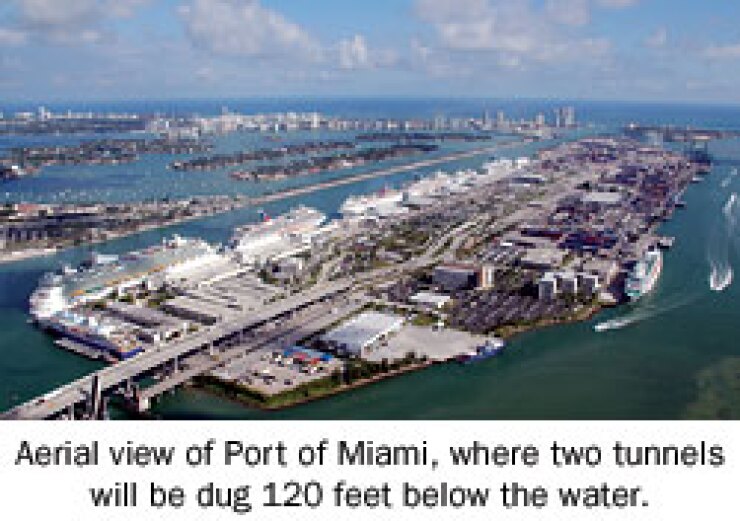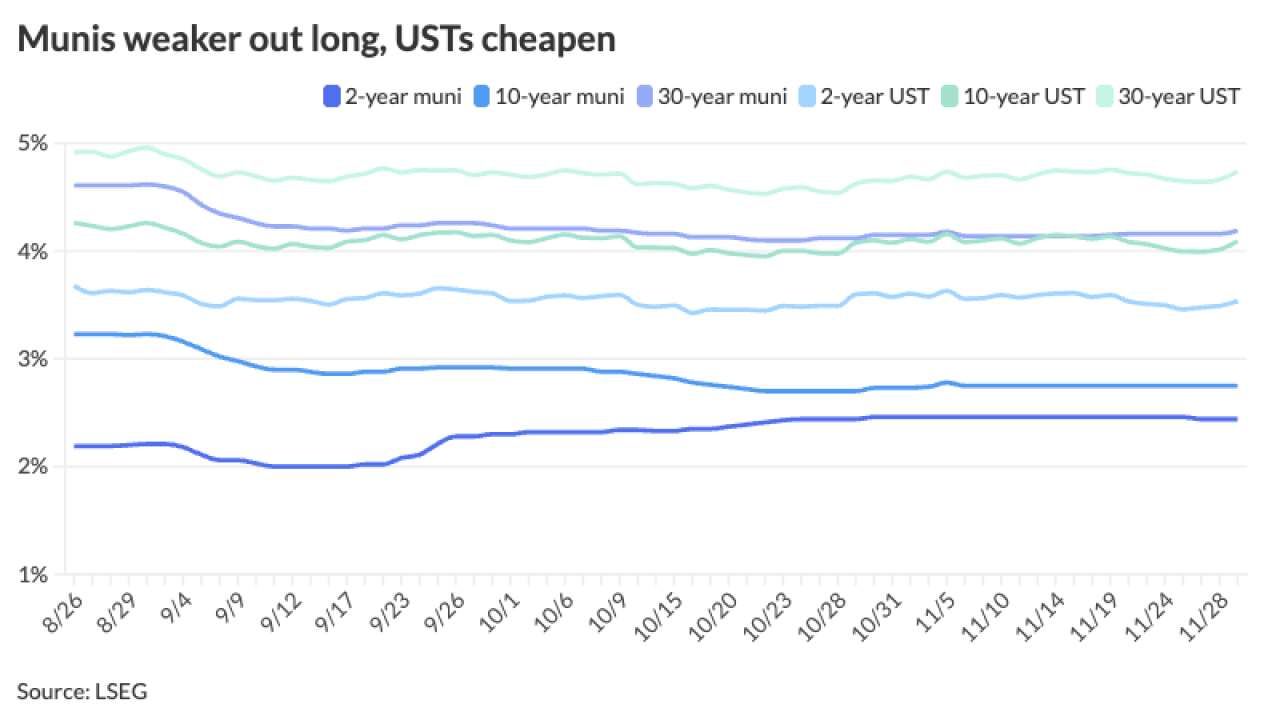
BRADENTON, Fla. — The $1 billion Port of Miami Tunnel project Thursday reached financial closing — a conclusion that took nearly four years due to economic challenges, political problems, and diminished access to credit for large transportation-related public-private partnerships.
The landmark South Florida project involves boring 120 feet below the water from the mainland to the Port of Miami to install two 3,900-foot-long tubes that are 41 feet in diameter. Each tunnel will provide two lanes of traffic for large cargo trucks and cruise passenger buses going to and from the port, bypassing downtown Miami, which is currently the only way to reach the port.
The final papers were signed Thursday signifying that the necessary financing among the P3 partners is in place for MAT Concessionaire LLC, formerly Miami Access Tunnel LLC, to design, build, finance, operate, and maintain the tunnels over 35 years using only the second availability payment scheme in Florida and the U.S.
MAT’s equity providers are Luxembourg-based Meridiam Infrastructure Finance SARL operating as Meridiam Infrastructure Miami LLC, with 90% of the equity, and France’s Bouygues Travaux Publics SA operating as Dragages Concession Florida Inc. with 10% of the equity.
While MAT will bankroll project construction cost up front, the Florida Department of Transportation will oversee the work and make periodic payments as the concessionaire reaches milestones such as construction of the tunnels, which must occur within five years. The tunnels are expected to be open by 2014 and, unlike most such P3s, they will not be tolled.
MAT will be repaid through the years by FDOT, which will fund $457 million from its annual budget. Another $402 million will come from Miami-Dade County, which is using tax exempt bonds to finance a portion of its contribution, and $50 million from the city of Miami plus donation of the right of way.
Although the concessionaire obtained a $980 million private-activity bond authorization from the U.S. Department of Transportation as part of its initial funding plan, MAT will use bank financing because the credit markets remain disrupted for certain industries, such as large P3s, said Jeff Parker, president of Jeffrey A. Parker & Associates Inc., a specialty firm that acted as the financial consultant to FDOT.
“We pursued with MAT a bank option and a bond option and at the point where we were meeting a deadline we had to make a decision,” Parker said. “The market for private-activity bonds is just not there and the monoline [bond insurer] support is not there.”
The same situation occurred earlier this year when FDOT entered its first availability payment concession contract to build the Interstate 595 project in Broward County. The main equity partner in that project, ACS Infrastructure Development Inc., was forced to turn to European banks for financing because the bond market was disrupted then.
A consortium of 10 banks will provide senior debt financing for Port of Miami Tunnel project. They are BNP Paribas, Banco Bilbao Bizcaya Argentina, RBS Citizens, Banco Santander, Bayerische Hypo, Calyon, Dexia, ING Capital, Societe Generale, and WestLB.
The project also will receive a $341 million low-interest loan through the federal Transportation Infrastructure Finance and Innovation Act program.
The tunnel project, decades in the planning process, was beset by many other delays besides the credit crisis. Late last year, the former majority equity partner in MAT — the troubled Babcock and Brown Infrastructure Group US LLC — had to be replaced by Meridiam. Nearly a year was lost because of delays at the local government level over funding, while the FDOT had its own troubles with budget cuts.





